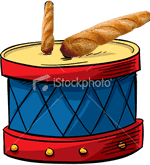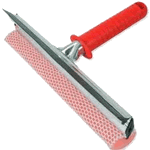Yesterday a friend asked me about the origins of the words today and tomorrow, and whether the to- part of them was orginally the. You sometimes come across expressions like ‘on the morrow’, and words appear with hypens in older texts: to-day and to-morrow.
According to the OED, today comes from the Old English tó dæg – the dæg part means day and the tó part means “at/in/during (a time), or on (a day). Tomorrow comes from to morȝen or to morwen – the morrow part means morning.
According to the Online Etymology Dictionary, today comes from the Old English todæge or to dæge (on (the) day), and Tomorrow comes from the middle English to morewe, from the Old English to morgenne (on (the) morrow), with morgenne being the dative of morgen (morning). They were written as two words until 16th century, then hypenated until the early 20th century.
In German (der) Morgen means morning, and morgen means tomorrow, and tomorrow morning is morgen früh or morgen vormittag, not morgen Morgen!
In French the word for today, aujourd’hui, comes from the expression au jour d’hui (on the day of today) – hui comes from the Latin hŏdĭē (today), a contraction of hŏc diē (this day). The Italian word for today, oggi, comes from the same root, and the expression al giorno d’oggi (nowadays, these days, today) has the same structure as aujourd’hui, though hasn’t replaced oggi as aujourd’hui has replaced hui in French. The Spanish and Portuguese words for today, hoy and hoje, also come from the same root and are used without embellishment. The Romanian word for today, astăzi, comes from a different root though – the Latin ista die (that day).
Sources: Wiktionnaire, Wikizionario, Wikcionario, Wikcionário & Wikționar.

